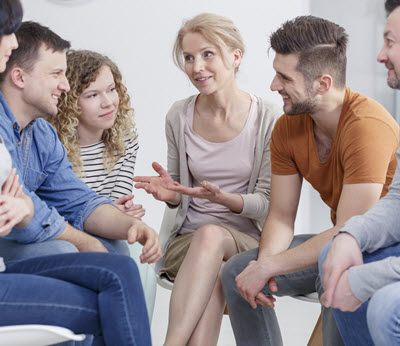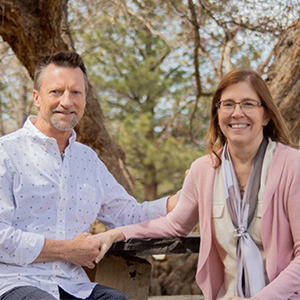What Is Group Therapy?
Have you ever considered joining a therapy group? Many people have never heard of this. What exactly is group therapy? In group therapy, one or two therapists meet with two or more people who usually have a concern in common. Different groups have different formats. For example, Restored Hope’s group for domestic violence survivors is a psycho-educational group. For part of the 90 minute session, I (Lisa) talk about a specific topic that is important to the group, such as:
- the dynamics of domestic violence
- how to set boundaries
- creating a safety plan.
Other groups are processing groups. In these groups, there is no specific topic for each session, the group members talk about what is important to them at that moment. The primary focus of the group is on the interactions among group members. Members are encouraged to give support and feedback to others, and to work with the reactions and responses that other members bring up for them.
Benefits of Group Therapy
Group Therapy can be just as effective and sometimes even more effective than individual counseling.
- Group members receive multiple perspectives, support, encouragement and feedback from other members in safe and confidential environment.
- Participants often learn more from other group members than they do from the therapist leading the group.
- Group therapy costs much less than the cost of individual therapy.
Group members realize that they are not alone in their pain, and that others are experiencing similar issues. There are many other “therapeutic factors” (things that help us) to be found in group counseling. Here are a few:
- Catharsis – being able to express your feelings and concerns to others who understand and empathize
- Insight – getting a better understanding of yourself and what you’ve experienced
- Interpersonal learning – receiving feedback from others, and learning new relational skills (like assertiveness, boundaries, etc.)
- Family reenactment – the group becomes like a family, and wounds from your family of origin can be mended
- Altruism – the great feeling you get when you are able to help another sufferer
- Instillation of hope – being encouraged when you see how others are solving their problems.
How Might You Grow in a Group?
If you tend to relate to others by being self-effacing and trying too hard to please, the group can give you a safe place to practice setting boundaries and saying “no.” If you tend to react to difficult situations with anger, you can practice sharing your feelings instead of reacting with anger. Do you resist making changes in your life? The group can be a good place to practice making changes you have considered. If you find yourself filling in any pause in conversation with words, you can practice being silent, then talk about how the silence makes you uncomfortable. There are any number of ways being apart of a group can grow you as a person.
Groups Restored Hope Offers
We are currently running several groups, some in our office and some at other venues:
- Narrative Witnessing Group for Men
- Overcome – (created by My Quiet Cave) – which helps those struggling with mental health issues
- DivorceCare – walking alongside those experiencing separation and divorce.
We are considering other possible groups
- Psycho-educational group for domestic violence survivors
- Processing groups for adolescents
- Blended Family groups.
We love running groups and watching our group members growing, changing and getting stronger!



